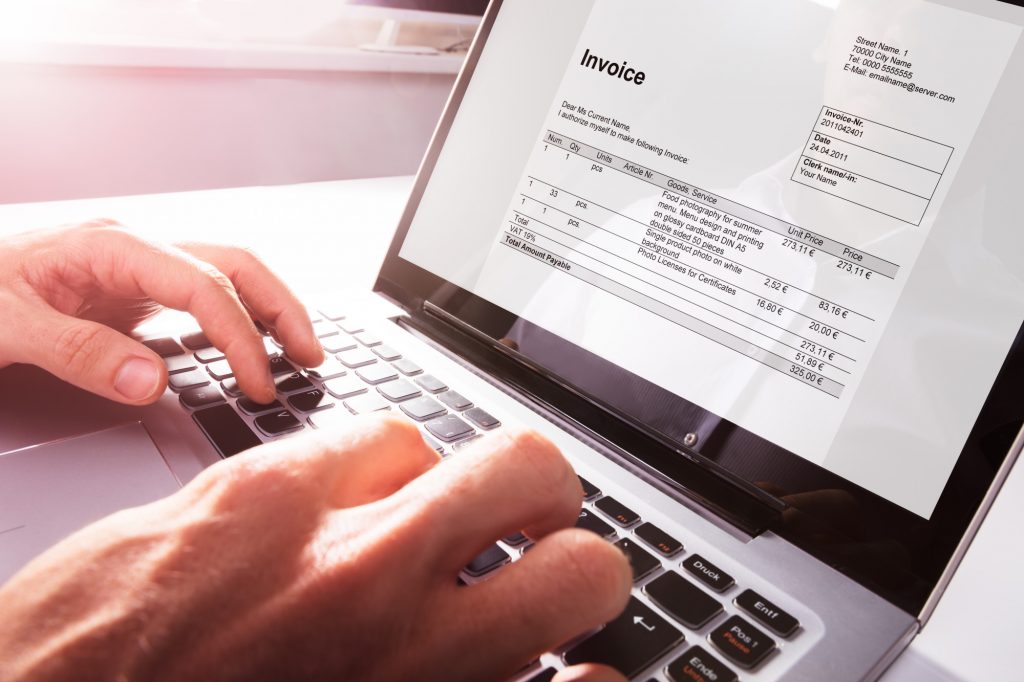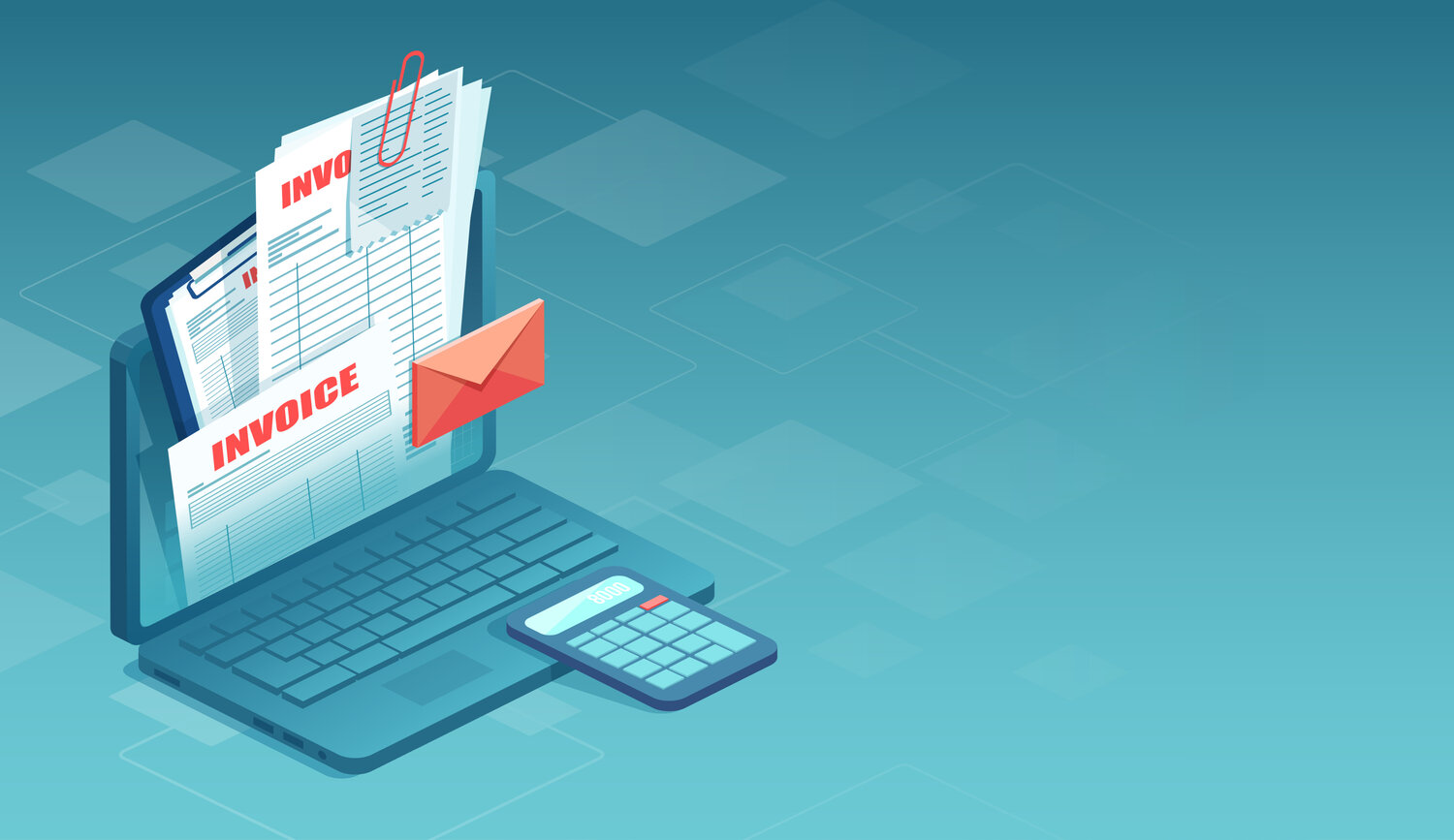The e-invoicing market is growing positively in the business world, rising rapidly, due to its importance in financial operations, and market research expects the e-invoice to grow by USD 6.93 billion by 2024, given the global shift towards more digital financial services and e-billing efficiency.
Saudi Arabia is one of the countries that has adopted the electronic invoice system. The Zakat, Tax and Customs Authority (ZATCA) in Saudi Arabia (Saudi Arabia) has issued regulations requiring companies to adopt the electronic invoice process in two stages, since December 4, 2021. What are the requirements for registration in the electronic invoice system in Saudi Arabia and the approved accounting programs? Read on.

What is the electronic invoice?
Electronic invoice is the process of creating invoices in a digital format, so that you can issue and store them electronically. Electronic invoice can also be distributed between suppliers and buyers in a completely secure and integrated digital format. This electronic billing model is a digital solution for traditional electronic data exchange systems, which were bulky and require customized configurations for their limited coded and binary exchanges.
The Importance of Electronic Invoice
E-invoice offers users a range of features, including
- - The electronic invoice allows suppliers to easily monitor the stage at which the invoice reaches the approval process at any time.
- - Automating the electronic invoice process eliminates payment delays as data is immediately available electronically in office systems.
- - E-invoices give managers and stakeholders a better view of the company's finances and cash flow.
- - Electronic billing can significantly reduce labor costs, motivating your employees to talent more productively.
Electronic Invoice System in Saudi Arabia
For VAT taxpayers in Saudi Arabia, the e-invoice will resemble VAT invoices that are generally issued, but will be generated through an online system. A copy or scan paper invoice is not an electronic invoice.
Once the e-invoice is issued, it cannot be edited, however, you can issue electronic notes (credit and debtor notices compatible with VAT and issued through an electronic system), as they must be issued by reference to the original invoice issued, for example, if the buyer returns your product, you cannot change the original invoice, but you can issue a creditor notice through the e-invoice system.
All your invoicing and notes transactions must be done through the same electronic invoice system, and must be in conformity with ZATCA regulations, as this standardizes the way the transactions are done, ensuring that everything is done uniformly and the information is stored securely.
You will have to issue an electronic invoice for sales made in-country, exports made from Saudi Arabia to other countries, goods and services for which you have received advance payments. Electronic invoices are not required for VAT-exempt supplies and related payments, imports entering Saudi Arabia, or supplies subject to the reverse accounting mechanism.
Registration Requirements in the Electronic Invoice System in Saudi Arabia
Depending on the Dazzakat and Income Authority's location, Zakat and Income does not require a uniform format across the entire electronic invoice system, but rather a set of items that must be included in the invoice to then be sent to the system through the accounting software used by your organization. These elements are:
- - Invoice Type
- - Include whether or not the invoice is issued on behalf of a person
- - Serial number distinguishes invoice and is not duplicate with any other invoice
- - Invoice issuance date (day-month)
- - Trader's name and address in detail
- - Tax Number
- - Description of commodity or service
- - Price of commodity or service
- - QR Code
- - Quantity sold of the said commodity or service
- - Total amount (excluding VAT)
- - Total invoice value (VAT inclusive)
The invoice must be issued electronically through the electronic invoice software, as handwritten invoices and photographed using a scanner, or issued using an electronic invoice editor software, are not considered acceptable in the new system.
The electronic invoice must also be issued in Arabic and in XML or 3 -A/PDF format (including XML format).
Here's a list of Zakat and Income Authority approved accounting programs:
1. Xero Accounting Software
The Xero accounting software comes with strong accounting features, allowing small businesses to watch cash flows, account details and transactions from anywhere. Banking transactions are automatically imported and coded.
2. QuickBooks
QuickBooks is one of the most popular accounting software for small businesses in 2022, whether you want to stay away from manual bookkeeping, grow your spreadsheets to multi-headed hydra, or you need a better choice compared to your current software, QuickBooks can be the best choice.
3. Books Zoho Program
Zoho Books is one of the most prominent accounting programs approved by Zakah and Income Authority. Zakah and Income Authority emphasizes that all companies must send their bills, discount notices and credit notifications in specific electronic formats to the ZATCA portal for authentication.
4. DZAMA Accounting Program
One of the advantages of the Dzakat and Income Authority accounting programs is that through the Dzakat program you can follow customer payments, keep records and maturity dates and choose a method of collection, as well as obtain final accounts reports, calculate and identify taxes, issue tax reports, follow up sales, expenses and collections from each employee.
5. Accounting Program Constraints
The Qoyod program allows analysis of all revenues and costs such as comparing sales to a particular product or determining commission for a sales representative, as well as managing payments, collecting amounts and paying the enterprise's obligations.
6. SMACC Accounting Program
SMACC, a Saudi cloud accounting software approved by Zakah and Income Authority, is a feature of SMACC that helps to manage fixed assets and calculate depreciation rate, store and follow up credit notes, as well as budget management and monthly budget comparison, and also helps to review profit margins from product items.
Conclusion:
Automating the receipt and digitization process eliminates boring and unnecessary tasks. It will also allow your team to spend more time on value-added tasks. If your company is interested in prioritizing value-added tasks and simple manufacturing tools, electronic invoicing is an important step.
Important Topics
Reference
1. <<Electronic Bill Payment & Presentment (EBPP)>>, investopedia
2. <<Violation of refraining from issuing the tax invoice>>,wikipedia

Add New Comment